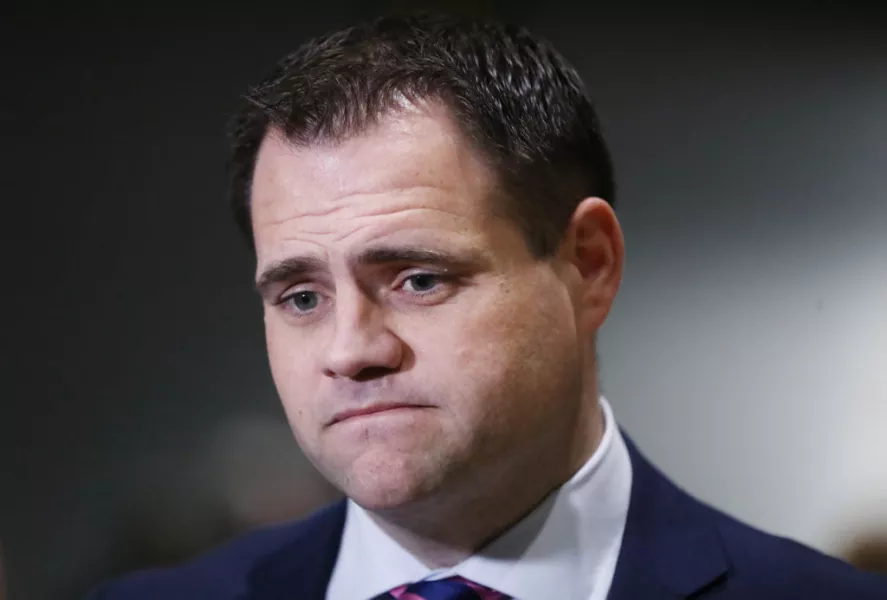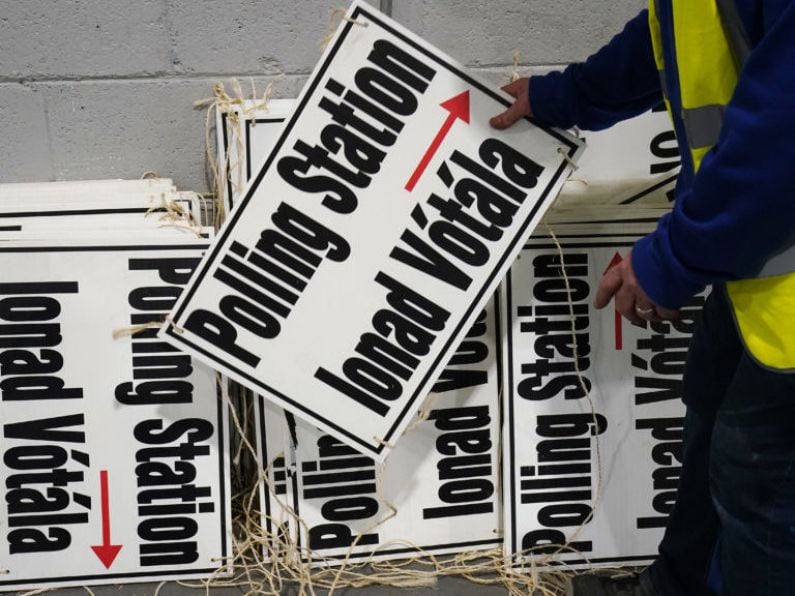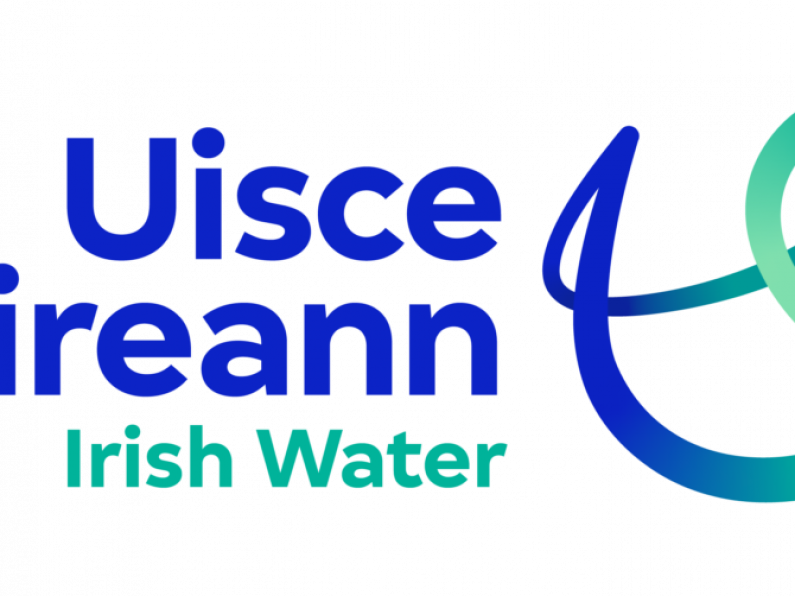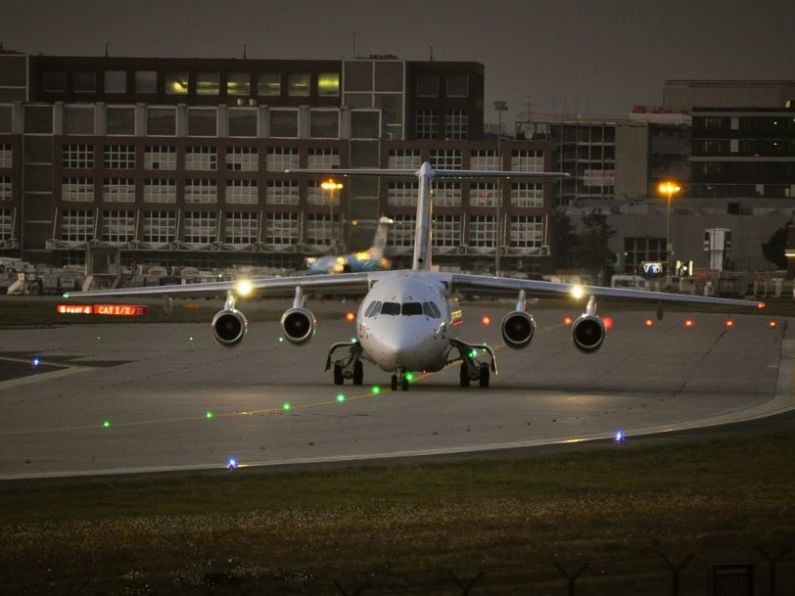
By James Ward, PA
Two citizens’ assemblies should be held in the North and the Republic to lay the groundwork for a Border poll which could be held in the next decade, a Fine Gael TD has said.
Neale Richmond will present his new paper, Towards A New Ireland, at Sidney Sussex College, Cambridge University, on Monday.
The paper takes an in-depth look at the realities of a united Ireland and the creation of a new State, focusing on areas of government, healthcare, education and the economy.
Key to his proposals is that people identifying as British in a new Ireland would retain the same rights to citizenship and identity as is afforded to people in the North under the Good Friday Agreement.
The Dublin-Rathdown TD does not believe a Border poll should be held in the near future.
But he said the governments in Belfast and Dublin must prepare for the possibility that one could be called after the next UK general election.
He said: “I think there is a prospect that the Secretary of State could declare that a Border poll is needed in the next decade.
“But even if the Secretary of State or future Secretary of State isn’t going to do that, we need to know that as soon as that is called, we can react quickly to put this in process.
“That once it’s deemed necessary to have a Border poll, that entire process including citizens assembly and parliamentary committees, can all be done in a two-year timeframe.”
Mr Richmond said a citizens’ assembly, similar to the one held in the Republic prior to the referendum on the Eighth Amendment, could set out a clear pathway for a new Ireland in the event of poll on unity.
“I think the citizens’ assembly model serves us in this jurisdiction well, particularly when we had to deal with two of the most difficult issues before they went to referenda, namely repeal and marriage equality,” he said.
“It think there is a proven model there to bring the citizens in, representative of all society, to go through these issues before putting it to various parliamentary committees, one per jurisdiction, and then back to the committees.
“I think there should be an external chair, who is an expert on constitutional framing.
“It’s a great way to have that engagement, to have a detailed plan that, when a Border poll is called, that we can click into gear with a process starting with an electoral commission, a citizens’ assembly, parliamentary committees, back to the assembly, and then a referendum.”
While recent discussions on a potential united Ireland in the Republic have focused on issues such as flags and anthems, Mr Richmond insists those thorny issues around symbols should be parked until the end of the process.
He said: “It’s a very emotional, but not necessarily impactful, aspect of this discussion.
“If we look at the Brexit referendum, then we have to really lean on the experience of the mistakes of that.

“It’s very easy to set a concept but we need to be able to provide for what actually will be the tangible result, and go through the really meaty detail of how we merge our health systems, how we merge our judicial systems, how we provide a proper political representation.
“Then we can decide if we need a new flag, if we need to have an anthem without words, those sort of aspects.”
He added: “If you park the issue of symbols until the last day, much of the other work can be done first. It might even make those discussions a lot easier in the end.”
The paper sets out a vision for a new political system, that would retain elements of the power-sharing dynamic in Stormont for at least the first decade.
Rather than people from Northern Ireland just entering into the existing Irish State, this is an opportunity for a new Ireland
A devolved administration would continue in Belfast for 10 years, in parallel to an all-island parliament in Dublin.
The lower house would be made up of “multi seat, geographic, constituencies” and “elected by proportional representation, single transferable vote”.
The house would elect a speaker and deputy speaker, one of whom would come from Northern Ireland, with the same principles applying to the chairs and vice-chairs of parliamentary committees.
He said: “We have to transition properly, in a way that allows for a good sustainable government across the island, that we can iron out the procedural differences and things like that, and ensure that we have an electoral system that provides fair representation and ensures that voices are heard.
“Rather than people from Northern Ireland just entering into the existing Irish State, this is an opportunity for a new Ireland.”
Mr Richmond said that while he would never expect a unionist to vote for a united Ireland, any new Ireland must be a place “where they don’t feel compelled to leave”.
He voiced his disappointment at the recent unrest in Northern Ireland, but does not believe it has set back the cause of reunification.

He said: “The scenes in Belfast, Derry and Coleraine last week have obviously been really disappointing. That doesn’t necessarily mean we’re further away.
“There’s been violent clashes on the streets throughout the peace period.
“Is it the ideal time to put out this paper? There’s no ideal time. There’s always going to be issues.
“There’s always going to be people, who through their very definition of identity, will baulk at even the concept of a potential united Ireland in the future.
“But we have to be ready that if that conversation does occur, that we are able to do it in a concrete and planned manner.”











